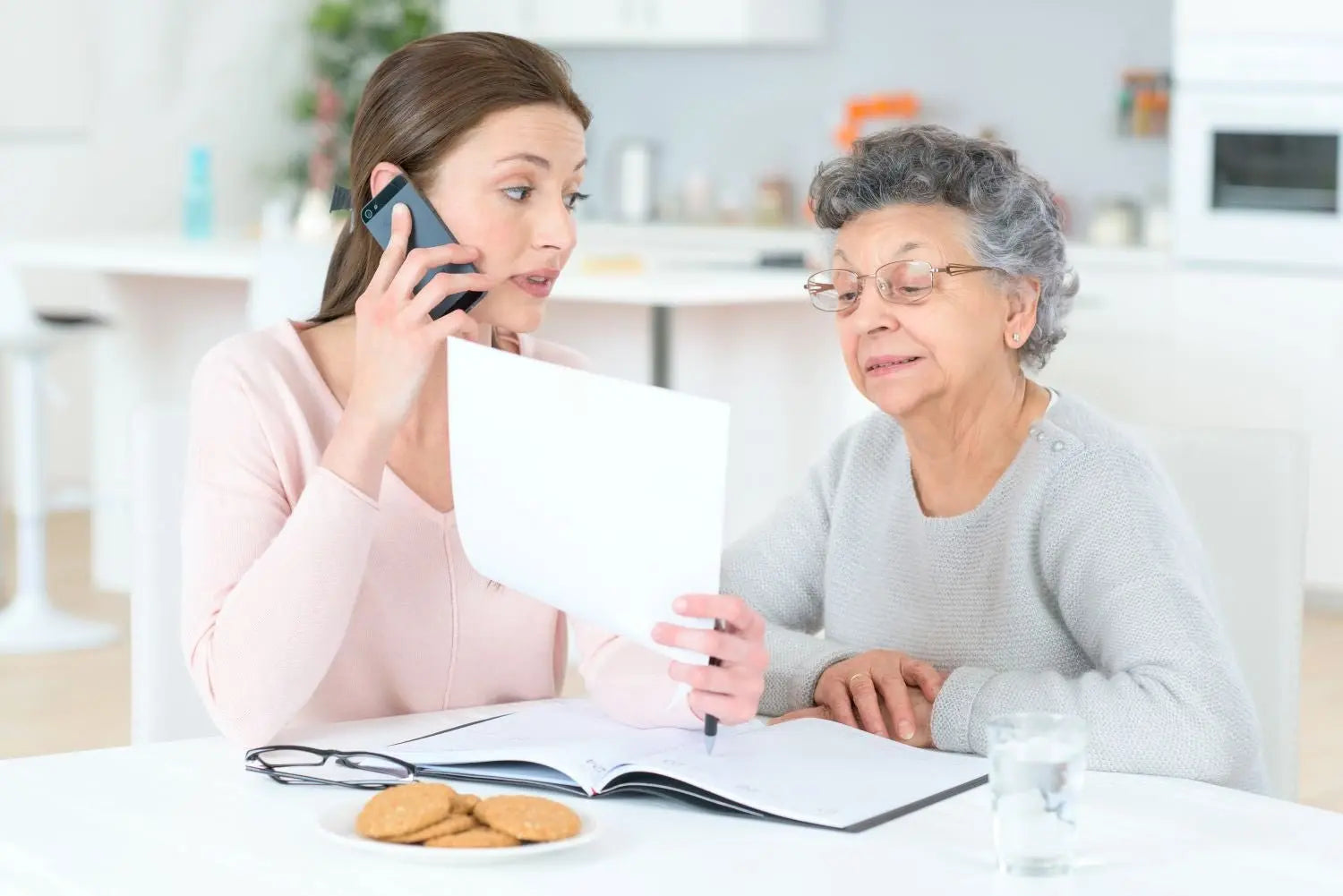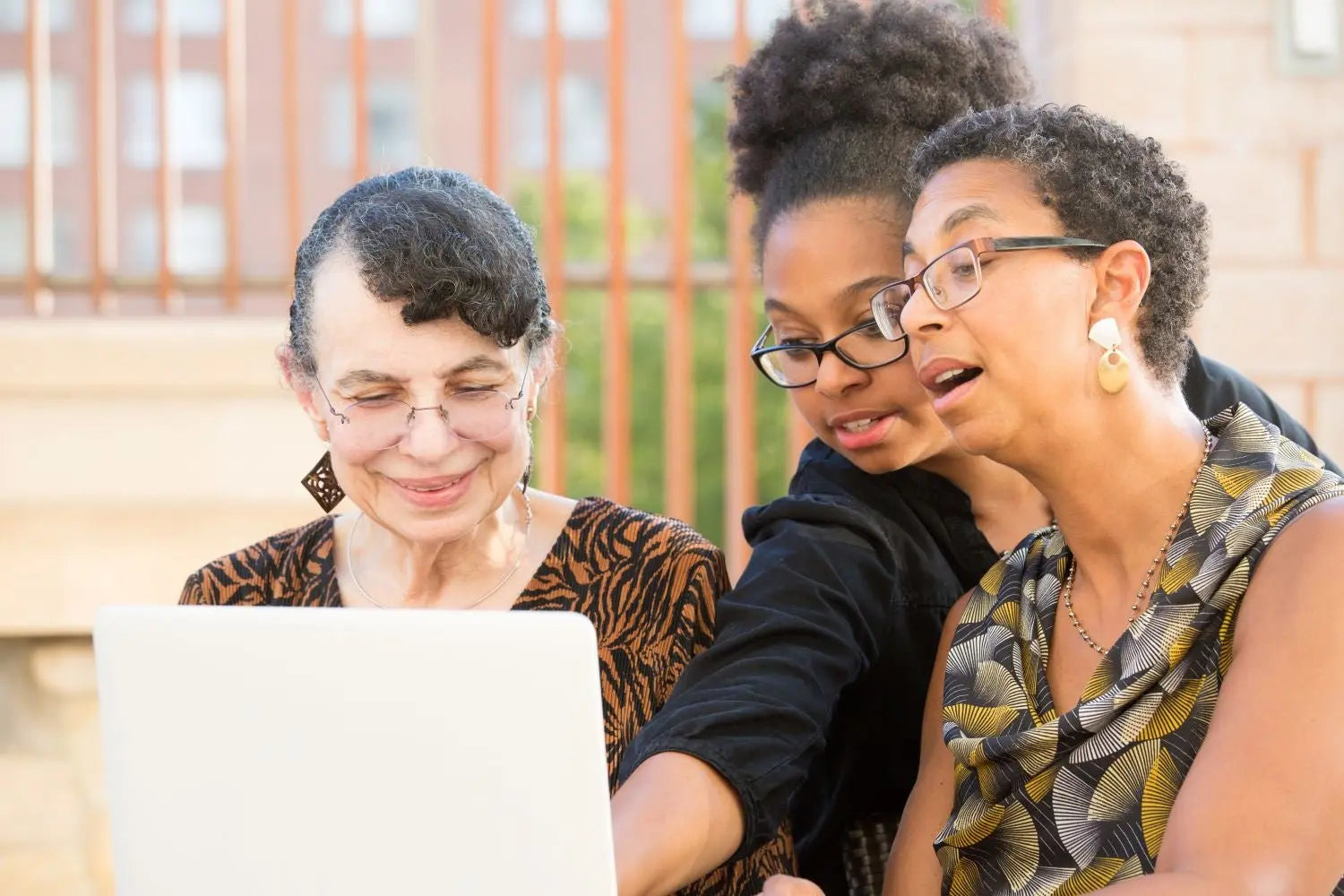Financial Caregiving - A Guide for Elderly Caregivers
Are you a caregiver for a senior loved one? If you are caring for an aging parent or relative, you're not alone!
Millions of Americans are family caregivers assisting aging parents or older adult relatives. "Among those who have at least one living parent aged 65 or older, roughly one-third. 32%) say they have helped their parents make financial decisions or provided financial support in the past year."
Being a caregiver managing financial affairs for someone else can become expensive. Due to inflation and increased life expectancy, the cost of aging in place has also increased.
This blog post will discuss the two types of financial caregivers, what financial caregivers do, and how to manage expenses.
What is a Financial Caregiver?
Financial caregivers are responsible for managing and paying expenses that the older adult would have otherwise paid before they became unable to do so themselves. They may also manage investments and communicate with banks and other service providers on behalf of their loved ones (or friends).
Who Can be a Financial Caregiver?
A financial caregiver for an elderly person is often a family member, such as an adult child or grandchild. In many cases, however, the financial caregiver may be a younger relative — for example, a niece or nephew.
What Kind of Financial Caregivers are There?
There are two kinds of financial caregivers, financial contributors, and financial coordinators.
Most caregivers fall into both categories, with some taking on a more active role in managing finances while others contribute money.
1. Financial Contributors
Financial contributors help financially by contributing money to the care of an elderly person. This support may be through monthly contributions or one-time payments.
Why would someone need a financial contributor?
If you are taking care of an elderly parent, they may have run into unexpected financial burdens, or perhaps they were unable to save for the future.
What are some of the costs of taking care of elderly parents at home?
Many expenses come with being a financial contributor for a senior loved one. The most common are...
Personal Necessity Expenses:
• Clothes
• Medicine
• Toiletries
Home Repairs & Modifications
• Fixing leaks in the roof or plumbing problems with sinks and toilets.• Installing ramps for wheelchair users
• Fixing broken windows
Medical Expenses
• In-Home care costs- such as home health aides, respite care, and other personal care services• Prescription Medicine costs
• Insurance deductible costs
Household Expenses
• Food• Mortgage/Rent
• Utilities
Transportation costs
• Gas for a vehicle• Bus fare
• Taxi rides
How do I know what costs I will need to cover or manage as a financial caregiver?
Develop a Financial Care Plan - How to manage your elderly parent's money may seem daunting. That's why together with your parents, you should create a financial care plan that lists out your parent's monthly expenses. This plan will help determine if they are:
Financially capable of providing for themselves – do they have enough money put aside to take care of their personal, household, and medical needs?
Physically/Mentally capable of handling finances independently – If necessary, you may want to consult with their doctor. They will be able to tell you if they believe your loved one is of sound mind and physically able to make bank runs or spend time organizing and paying expenses when they come due.
Get Help - If possible, hire a financial coordinator to help you determine what expenses your parents may and may not be able to cover and how the best way to go about handling their finances would be, in their opinion.
2. Financial Coordinators
A person who manages money for another is called a financial coordinator. As a financial coordinator for your senior loved one, you may manage finances, bank accounts, and pay bills on time. They also keep track of expenses and ensure that no money is wasted.
If you are solely a financial coordinator, you are not paying for expenses from your pocket. Instead, you are coordinating costs. As a financial coordinator, you may be in charge of one or all of these tasks:
• Make sure bills get paid
• Handle insurance claims
• Keep checkbooks balanced
• File taxes
Why would someone need a financial coordinator?
Perhaps your parents are financially stable enough to pay for their expenses. Still, they can no longer fulfill the responsibility of making sure these finances are dealt with in a timely fashion. If this is the case, they need someone who can make sure their money is going to where it needs to, when it needs to go there.
How Can I Save Money on Home Care Costs?
Caregiver financial help is available through several networks and organizations. There are also groups and benefits that can help seniors stay afloat financially. Many organizations offer consultation on long-term care insurance, Medicaid planning, annuities, and estate management. Professional advisors can work with families to create a personalized plan to meet the senior's specific needs and wishes for the future.
AARP - The AARP has a wealth of information on their website, including articles on how to pay for long-term care, whether or not to downsize, and tips for protecting assets.
Caregiver Action Network - This national nonprofit offers information on various topics related to caregiving, including finances. One of the best features of their website is that you can search by topic or state.
The National Council on Aging (NCOA) - offers helpful advice on its website about paying for long-term care and Medicaid eligibility.
Medicare - Medicare can financially benefit elderly caregivers because it covers a lot of the cost of health care.
Medicare for the elderly covers the costs for:
• Doctor's visits and procedures.
• Inpatient care in hospitals, skilled nursing facilities (not custodial or long-term), hospice, & home health care
• Outpatient care includes preventive services like a flu shot or screening test for cancer.
• Some medical equipment like walkers, wheelchairs, and oxygen.
Medicaid Programs - Medicaid is a government health insurance program that helps low-income people and families pay for medical expenses. It is available to people of all ages, but it is especially helpful for seniors who need long-term care. To be eligible for Medicaid, caregivers must meet specific requirements, such as income and asset limits.
The Department of Veterans Affairs (VA) - offers financial assistance to veterans and their families. The VA's Aid and Attendance benefit pays a monthly pension to veterans and their spouses who require help with activities of daily living, like bathing or dressing. This benefit can be used to help pay for in-home care, assisted living, or nursing home care.
The Social Security Administration - offers several programs to help seniors pay for medical expenses and caregiving costs.
Make sure your parent's home is safe for them!
Home modifications - Seniors may safely age in place with simple home modifications such as wheelchair ramps or handrails on steps. Please view our complete in-home safety checklist for seniors.
Affordable in-home monitoring - Monitoring systems such as a medical alert system can help seniors avoid costly hospital stays. Remote monitoring using cameras and sensors also allows you to keep an eye on senior loved ones while you're away.
MOBI offers a high-quality complete home and health monitoring solution at an affordable price. Whether you need a camera to monitor elderly relatives or a support monitor for an elderly loved one, we have what you're looking for. With MOBI monitoring technology, you can feel confident that your elderly loved ones are safe, no matter how far away you are. Stay connected, with MOBI Connected.
Reach out to us today on Facebook or email us at service@getmobi.com. We are happy to answer any questions you have on how home and health monitoring can assist you in your day to day life.




10 comments
CurtisShini
В SEO-стратегиях часто применяется раскрутка сайта xrumer для быстрого результата.
Richardnap
Для размещения ссылок на форумах можно использовать прогон хрумером по форумам https://www.olx.ua/d/uk/obyavlenie/progon-hrumerom-dr-50-po-ahrefs-uvelichu-reyting-domena-IDXnHrG.html, что значительно ускоряет процесс.
Anonymous
555
Anonymous
555
Anonymous
555
Leave a comment
This site is protected by hCaptcha and the hCaptcha Privacy Policy and Terms of Service apply.